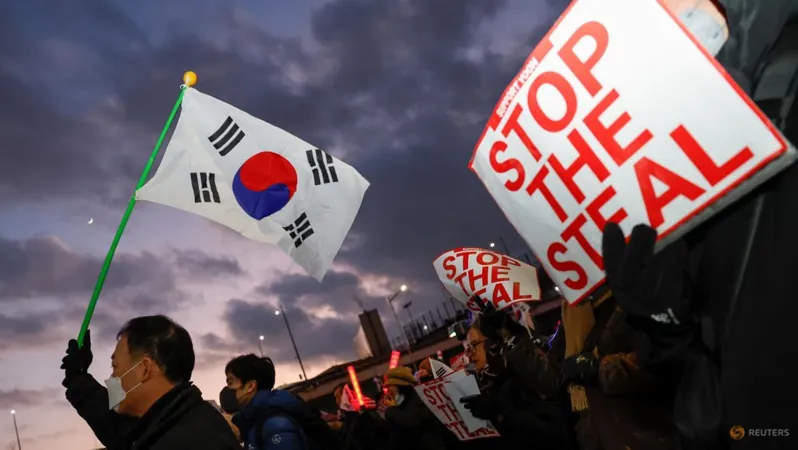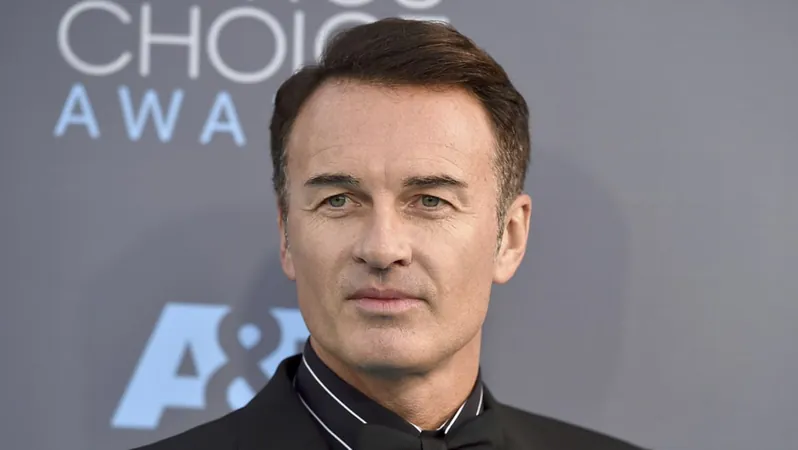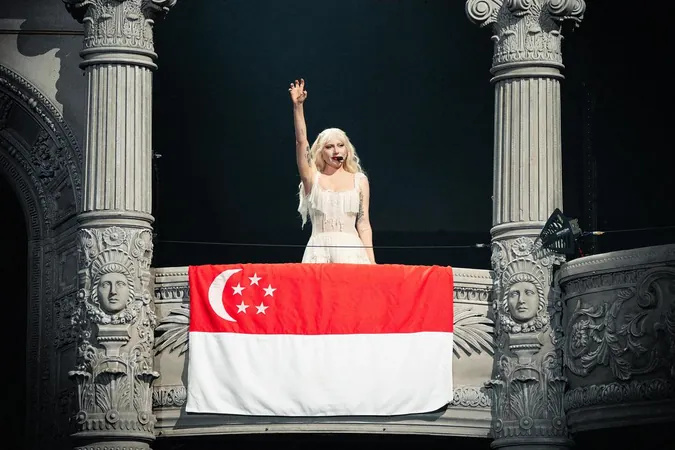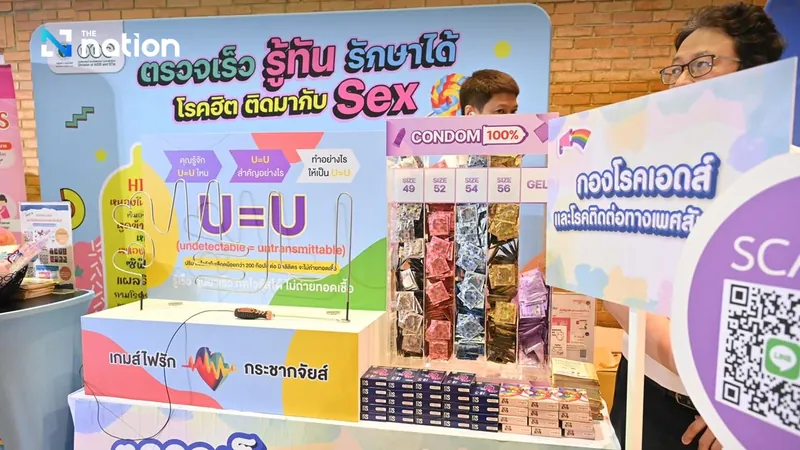
South Korean Supporters of Yoon Suk Yeol Embrace 'Stop the Steal' Movement, Seek Trump’s Support
2025-01-03
Author: Sarah
SEOUL: A Growing Movement
As tensions rise over the political future of impeached South Korean President Yoon Suk Yeol, his supporters have adopted the controversial "Stop the Steal" slogan that gained traction among supporters of former U.S. President Donald Trump. Their hope? That Trump will lend his powerful voice to aid their embattled leader.
Rallies and Arrests
In a show of solidarity, supporters rallied outside Yoon's residence in the early hours of Friday (January 3), raising signs emblazoned with “Stop the Steal,” reminiscent of the rhetoric surrounding the disputed 2020 U.S. presidential election. They gathered in anticipation of a possible arrest linked to a criminal investigation into Yoon's brief declaration of martial law on December 3.
Thanks to the intervention of presidential guards and military personnel, Yoon successfully evaded arrest on Friday. The investigation follows allegations of insurrection surrounding his controversial martial law declaration, which he argued was necessary for national security.
Trump's Silence
Interestingly, despite his approach, Trump has remained silent about Yoon’s predicament. Analysts note there are no direct connections between Trump’s political campaign and the fervor of Yoon's supporters. Yet, a rising wave of social media activity, particularly with hashtags like #StopTheSteal, indicates a growing sense of camaraderie between American and Korean political movements, with posts laden with memes reminiscent of Trump's "Make America Great Again" campaign.
Defense Tactics and Allegations
Yoon's defense tactics have echoed Trump’s past political strategies, underscoring claims of potential election fraud and a concerted effort to frame his administration as fighting against internal and external threats. His initial martial law declaration did not touch upon electoral issues; however, Yoon later dispatched military forces to raid the National Election Commission (NEC) and alleged that North Korea had breached their systems. Notably, he has not furnished any evidence to substantiate these claims.
The National Intelligence Service allegedly detected the supposed attack; however, the NEC, which operates independently, has since denied any allegations of a hack that could jeopardize electoral integrity. The NEC stated that despite prior consultations for addressing security vulnerabilities, there was no evidence of compromised systems and emphasized that elections are conducted using paper ballots—a system designed to ensure accuracy and integrity.
Public Sentiment and International Influence
This unfolding crisis has become the cornerstone of discourse among Yoon's supporters, who continue to justify his martial law declaration as an essential measure. Many members of the public now look toward Trump for support, hoping that his prominence can tip the scales back in favor of Yoon. "He could really help President Yoon," said Lee Ho-chung, a university professor, noting that the audience for their English-language signs spans both Koreans and Americans.
Amidst the fervor, 71-year-old Pyeong In-su, waving a flag decorated with both the U.S. and South Korean symbols, voiced his hopes for Trump's imminent return to power. "I hope Trump can raise his voice against the rigged elections, not just here but globally, to help President Yoon regain his position swiftly," he expressed passionately.
Accusations and Future Concerns
Moreover, some protesters have lodged accusations against foreign influence, with one demonstrator attributing electoral failures to "Chinese people" allegedly meddling in South Korean politics. When confronted with the NEC’s dismissal of fraud claims, she remained steadfast in her support for Yoon, stating, "The president is not someone who would say something wrong."
As Yoon's supporters continue to rally behind him, fueled by their affinity with Trump's political narrative, the intersection of South Korean and American political landscapes appears to deepen, prompting questions about the implications for democracy in both nations. Will Trump step in to support Yoon, and how might this partnership reshape the political dynamics in South Korea? Only time will tell.



 Brasil (PT)
Brasil (PT)
 Canada (EN)
Canada (EN)
 Chile (ES)
Chile (ES)
 Česko (CS)
Česko (CS)
 대한민국 (KO)
대한민국 (KO)
 España (ES)
España (ES)
 France (FR)
France (FR)
 Hong Kong (EN)
Hong Kong (EN)
 Italia (IT)
Italia (IT)
 日本 (JA)
日本 (JA)
 Magyarország (HU)
Magyarország (HU)
 Norge (NO)
Norge (NO)
 Polska (PL)
Polska (PL)
 Schweiz (DE)
Schweiz (DE)
 Singapore (EN)
Singapore (EN)
 Sverige (SV)
Sverige (SV)
 Suomi (FI)
Suomi (FI)
 Türkiye (TR)
Türkiye (TR)
 الإمارات العربية المتحدة (AR)
الإمارات العربية المتحدة (AR)